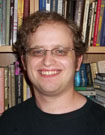Please join us for our last workshop of the Fall 2014 Term, which will consist of two shorter presentations:
Marx’s Account of Dialectic and its Contemporary Value
Aaron Bentley, The Graduate Center, CUNY
Tuesday, December 2nd, 2014, 4:15-5:15pm
Location: Room 5109
Group Responsibility for Dissident Action
Matthew Rachar, The Graduate Center, CUNY
Tuesday, December 2nd, 2014, 5:15-6:15pm
Location: Room 5109
Please see the abstracts for the workshop below.
Marx’s Account of Dialectic and its Contemporary Value
The aim of this paper will be to give an interpretation of Marx’s conception and use of dialectic in his larger philosophical project as well as to provide a precise account of the central concepts of the dialectical method as they are used by Marx. Understanding how Marx understands and uses dialectic is important in at least two ways. First, clarifying a central methodological tool employed by Marx can help clarify his project more generally. Second, something like Marx’s account of the uses of dialectal reasoning has potential as contemporary critique or revision of certain theories of social and political action and rationality. The second of these is my central I will argue that Marx is best interpreted as employing two distinct, but compatible notions of dialectic. First, he uses it in a manner that is straightforwardly compatible with his materialism, as a descriptive logic of history. Second, and more controversially, I will argue that Marx works with and uses a dialectic of ideas and that this use of dialectic is of great importance to the coherence of his greater philosophical project. The view emerges when one pays examines the way that partially free human activity is taken by Marx as that which drives, social, political, and historical change the study of which are at the heart of Marx’s program. In conjunction with Marx’s view of the aims of philosophy as revolutionary this view of human activity will be shown to require a dialectic of ideas. I will claim that this latter notion of dialectic is of great The paper proceeds in three steps. First I will argue for that Marx does endorse both forms of dialectic mentioned above, focusing on how this view can be consistently maintained in conjunction with Marx’s widely noted commitment to materialism. I will then go on to argue for a particular interpretation of the key concepts of dialectic as used by Marx: ‘contradiction’, ‘presupposition’, and ‘negation’. These interpretations will fall out of a proposed account of the relationship between ideal and descriptive forms of dialectic in Marx and the interpretation of key passages of Marx’s Grundrisse in which he employs these key dialectical concepts. In this section, I will also try to make these concepts logically precise in order to make clear the relationship between of dialectical methodology and so-called ‘analytical’ methodology, characterized primarily in terms of a commitment to classical logic. The upshot of this interpretation of Marx’s dialectic will be spelled out in the final section. I will argue that Marx account of dialectic can and should be taken as a contribution to the theory of action and practical rationality. I will do this by quickly offering an interpretation of Michael Bratman’s influential, contemporary account of practical reasoning as planning in practical contexts, and using it to show how how the interpretation of dialectic given in this paper can be used to critique and extend such views.
Group Responsibility for Dissident Action
This paper is concerned with the important practical concerns brought out by dissident action in the context of a group agent, especially for the relationship between individual agency and group agency, and the ascription of responsibility to group agents based on their institutional design. I use a thought experiment to highlight a problem for some accounts of group control over, and responsibility for, group member dissident action. I then offer a diagnosis of why this problem arises in certain theories and put forward some initial suggestions for what a full account of group responsibility for dissident action would require.













